Electric cars are coming: but where will you recharge?
- Published
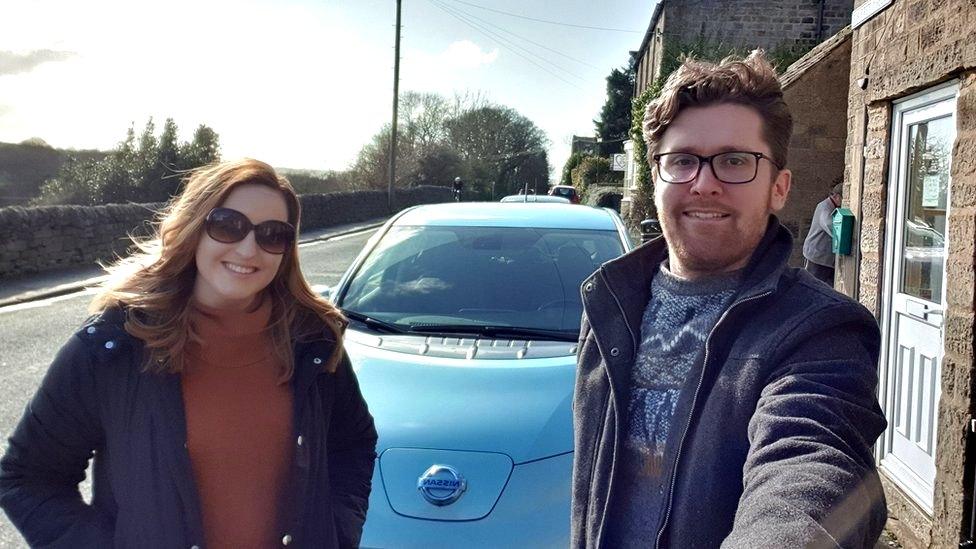
The Snowdens can't always charge their car outside their house
They've got the only electric car in the village. Tiffany Snowden and her husband bought their second-hand Nissan Leaf a few weeks ago and love it. It's smooth to drive and, she says, "It's got quite a lot of power to it". But there's a problem. It's a pain to charge up.
That's because, in the North Yorkshire hamlet where they live, it's a race home every night to get a parking space outside their house. If they succeed, they can plug the car in to mains electricity overnight. If they fail, the options are limited.
"The closest charging point to us is about 10 miles away," says Mrs Snowden.
This is a dilemma that could face an increasing number of drivers. The government says that in just 15 years the only new cars on the market will be fully electric vehicles (EVs) or hydrogen-powered alternatives.
While the number of charging points around the UK has increased by about 50% in the last 12 months, according to statistics, external from EV charging site Zap-Map.com, there are noticeable gaps in provision around the country.
A recent report from Capital Economics suggested that fleshing out the UK's charging network will cost £45.9bn between now and 2050. There are even fears that the electricity grid won't be able to cope as thousands more EVs get plugged in by their new owners.
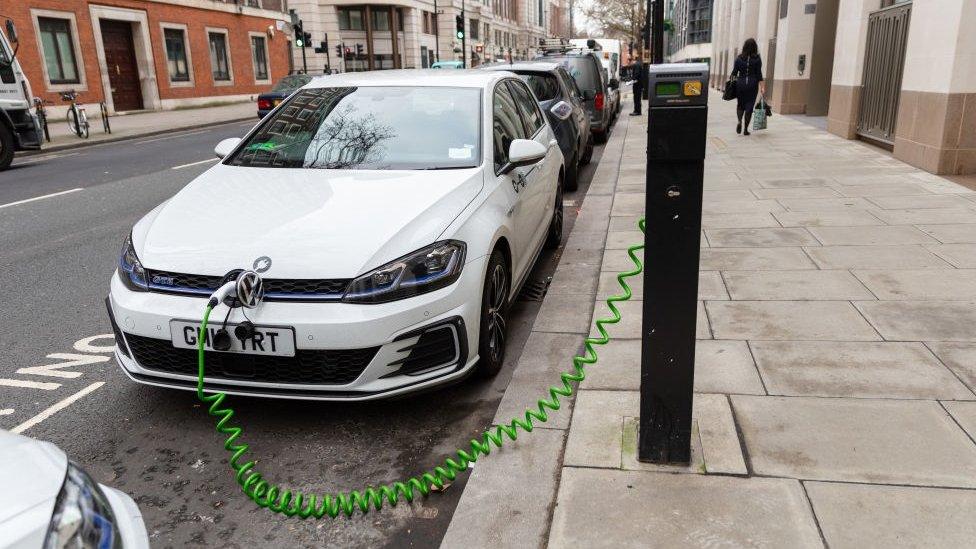
The number of charging points has risen by 50% over last 12 months
Is the UK ready for the electric vehicle revolution, then, or is the whole movement doomed to stall?
The Snowdens are hoping that their local charging problem will have a local solution. The government has allocated, external £5 million in funding for councils to spend on residential charging points.
However, when Mrs Snowden asked her council about this, a representative told her there was little space in the village for charging bays. Plus, they added that the expense of upgrading infrastructure for such facilities was significant. Improving cabling and substations alone could cost "upwards of £75,000", they said.
The representative advised Mrs Snowden to ask whether the local pub could install a charging point instead - because it has parking space available and, potentially, spare electricity.
In the meantime, the Snowdens intend to upgrade their home charging point and will have to carefully plan where they charge up and how they use the roughly 80 miles of range they get with their 2014 Nissan Leaf.
"I think we've kind of gone about it perhaps a bit backwards in getting the car first," she jokes. "We kind of jumped a bit into it but I think we just have to face it now, really."


For anyone else wondering where they might charge up a new EV, there are an increasing options, says Ben Lane, co-founder at Zap-Map.com.
"At current rates, we're essentially doubling the number of charge points in the UK over a two year period," he says. Around 10,000 individual charging connectors were installed in the last 12 months in the UK. However, Dr Lane adds that there are places where gaps in the network are apparent.
"Wales is the country in the United Kingdom that probably needs to do the biggest catch-up," he says. And while England has by far the most chargers, there are places where coverage is "fragmented".
Certainly, some EV users have not faced the same challenges as the Snowdens in North Yorkshire.
Richard Jackson and his wife bought their first EV, a BMW i3, as an experiment back in 2016.
"We ended up using the BMW for everything," he says. "It very quickly became our main family car."
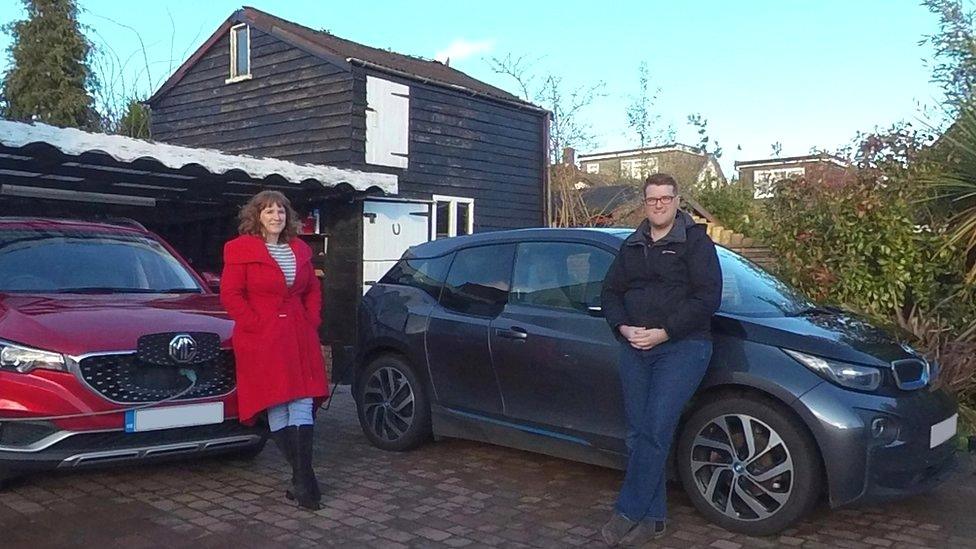
The Jacksons and their electric cars
Mr Jackson, who used to work in the petrol sector, commutes into London from his home near Hatfield and says that one of his main motivations for buying an electric car was to play a part in reducing ambient pollution in the capital.
"I really could tell, 'Wow, the air is not as good as it is out in the sticks'. I wanted to see… could I make a difference?" he explains.
He's since bought a second electric car, an MG ZS EV, and hasn't looked back. Planning when and where to charge on journeys is important, Mr Jackson says, but he's taken his car to France on family holidays without problems. Since he began driving an electric vehicle, he has come close to running out of electricity on only one occasion, he says.
However, he does add that while he saves money on petrol, charging the car when out and about does incur other costs: "My goodness me, you buy a lot of coffees when you go into charge points."
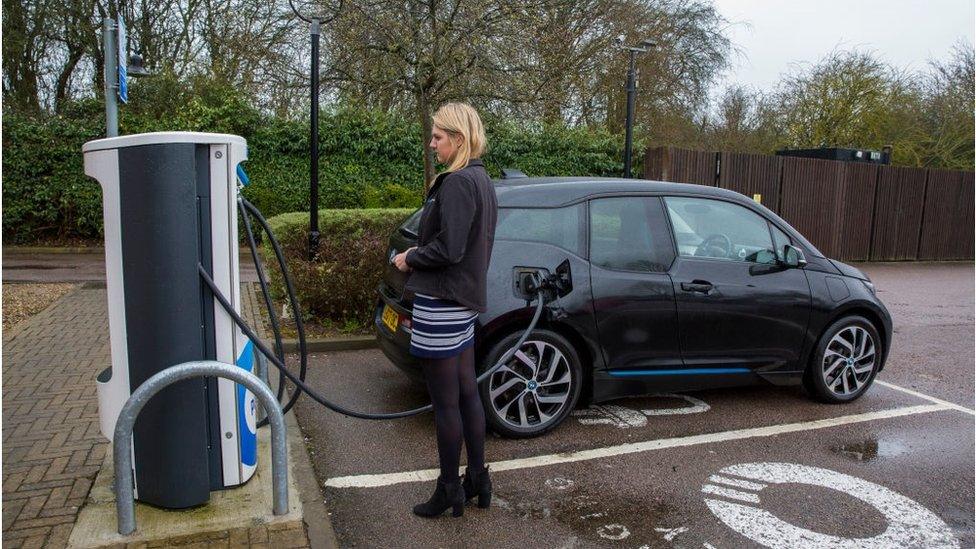
BP owns the Chargemaster network of charging stations
Most of the charging bays being installed at the moment are being paid for by private businesses - including electricity companies, car makers and firms, like BP for instance, that also run petrol stations. Chargers might be located at service stations or hotels, leisure centres and shopping complexes, for example.
In some cases, these facilities are free to use but most charge a fee or a monthly subscription. There are also important differences to watch out for - charging times will vary widely depending on whether you plug in to a slow, fast or rapid charger.
More than £1.5bn will need to be spent on public charging infrastructure by 2030, according to accountancy firm Deloitte. There are huge costs in terms of supplying cabling and substations as well as the charging points themselves, say Deloitte's Jamie Hamilton and Michael Woodward.
Dr Lane at Zap-Map.com estimates that the UK's chargers will need to be used on average around five times as often as they are today before the system is financially sustainable. Investing in the network now, though, is essential.
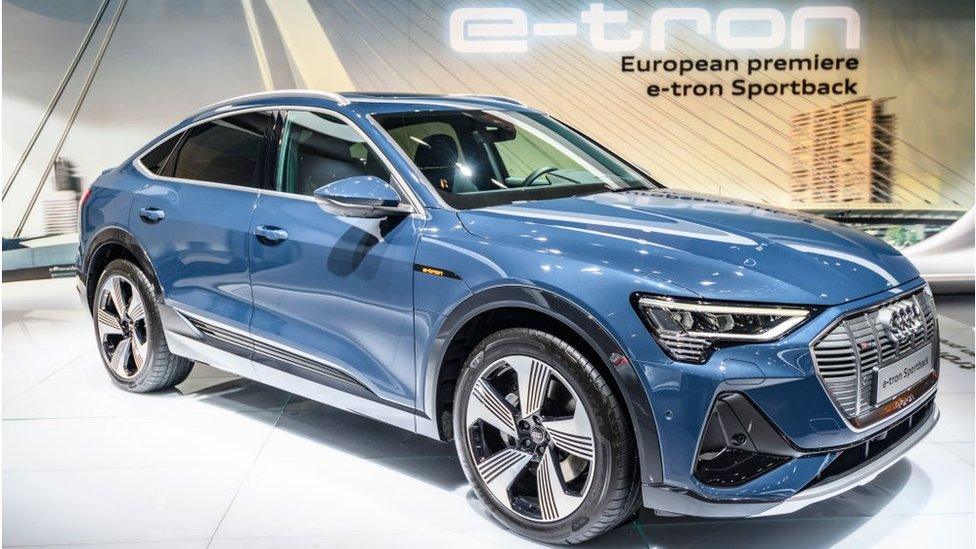
Many electric cars, including Audi's e-tron promise more than 200 miles between charges
As Mr Hamilton says, "Lack of charging infrastructure is the number one barrier to people in terms of buying EVs at the moment." That's become the top concern, having overtaken price and range, according to Deloitte's market research. Some new cars on sale today, including the Hyundai Kona Electric and the Audi e-tron, have more than 200 miles in range.
Even if the number of charging points around the UK does boom, some question whether the electricity grid will be able to cope with thousands of new vehicles thirsty for power.
A National Grid spokeswoman told the BBC that the anticipated increase of in electricity demand of 10% that is expected from EVs is "entirely manageable" because peak demand has fallen by 16% in the UK since 2002, due to efficiency gains. However, she adds that the system will still need to ensure everyone isn't plugging in their electric car at once.
This means connecting up charging points to a computer system that determines when they can be used. Currently, private individuals' car-charging habits are difficult to monitor and control.
The government has plans, external to bring in a new law that would ensure every new home built in the UK has an EV charging point. Some housing developments are already ploughing ahead with this idea.
Pedro Pacheco at market analysts Gartner praises this approach and says that, ultimately, drivers will have to be able to easily charge their cars at home or at work - with minimal change to their daily routines.
"In the end, this is absolutely essential for the acceptance of EVs," he says.